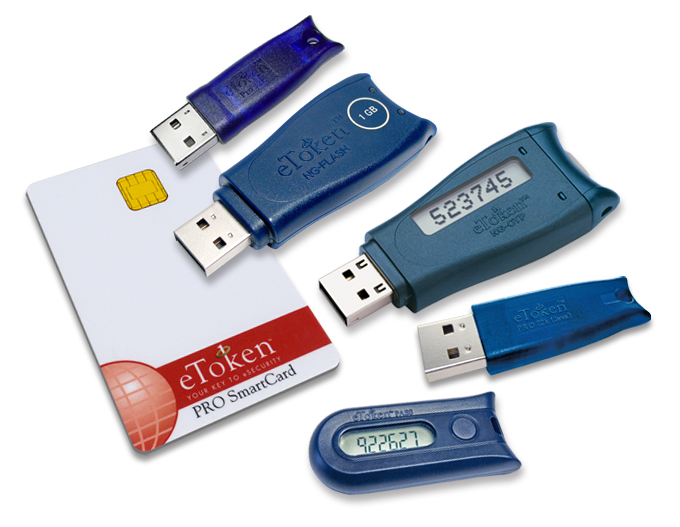|
Mykotronx
SafeNet, Inc. was an information security company based in Belcamp, Maryland, United States, which was acquired in August 2014 by the French security company Gemalto. Gemalto was, in turn, acquired by Thales Group in 2019. The former SafeNet's products include solutions for enterprise authentication, data encryption, and key management. SafeNet's software monetization products are sold under the Thales Sentinel brand. SafeNet was notably one of the largest suppliers of encryption technology to the United States Government. On 8 August 2014, Gemalto announced that it had signed a definitive agreement to acquire 100% of the share capital of SafeNet from Vector Capital for US$890 million on a debt free/cash free basis. A subsequent acquisition of Gemalto by French rival Thales Group was completed on 2 April 2019. History * 1983: SafeNet, Inc is founded in 1983 in Timonium, MD as Industrial Resource Engineering by two former NSA engineers, Alan Hastings and technical visionary ... [...More Info...] [...Related Items...] OR: [Wikipedia] [Google] [Baidu] |
KIV-7
The KIV-7 is a National Security Agency Type-1, single-channel encryptor originally designed in the mid-1990s by AlliedSignal AlliedSignal was an American aerospace, automotive and engineering company created through the 1985 merger of Allied Corp. and Signal Companies. It subsequently purchased Honeywell for $14.8 billion in 1999, and thereafter adopted the Honeywell n ... Corporation to meet the demand for secure data communications from personal computers (PC), workstations, and FAXs. It has data rates up to 512 kbit/s and is interoperable with the KG-84, KG-84A, and KG-84C data encryption devices. Versions Several versions of the KIV-7 have been developed over the years by many different corporations that have either bought the rights to build the KIV-7 or through corporate mergers. *KIV-7 Speeds up to 512 kbit/s *KIV-7 HS Speeds up to T-1 (1.54 Mbit/s) *KIV-7HSB Speeds up to 2.048 Mbit/s *KIV-7M Speeds up to 50 Mbit/s and supports the High Assurance Internet Protocol ... [...More Info...] [...Related Items...] OR: [Wikipedia] [Google] [Baidu] |
Initial Public Offering
An initial public offering (IPO) or stock launch is a public offering in which shares of a company are sold to institutional investors and usually also to retail (individual) investors. An IPO is typically underwritten by one or more investment banks, who also arrange for the shares to be listed on one or more stock exchanges. Through this process, colloquially known as ''floating'', or ''going public'', a privately held company is transformed into a public company. Initial public offerings can be used to raise new equity capital for companies, to monetize the investments of private shareholders such as company founders or private equity investors, and to enable easy trading of existing holdings or future capital raising by becoming publicly traded. After the IPO, shares are traded freely in the open market at what is known as the free float. Stock exchanges stipulate a minimum free float both in absolute terms (the total value as determined by the share price multiplied by the ... [...More Info...] [...Related Items...] OR: [Wikipedia] [Google] [Baidu] |
Cryptographic
Cryptography, or cryptology (from grc, , translit=kryptós "hidden, secret"; and ''graphein'', "to write", or '' -logia'', "study", respectively), is the practice and study of techniques for secure communication in the presence of adversarial behavior. More generally, cryptography is about constructing and analyzing protocols that prevent third parties or the public from reading private messages. Modern cryptography exists at the intersection of the disciplines of mathematics, computer science, information security, electrical engineering, digital signal processing, physics, and others. Core concepts related to information security ( data confidentiality, data integrity, authentication, and non-repudiation) are also central to cryptography. Practical applications of cryptography include electronic commerce, chip-based payment cards, digital currencies, computer passwords, and military communications. Cryptography prior to the modern age was effectively synonymous wi ... [...More Info...] [...Related Items...] OR: [Wikipedia] [Google] [Baidu] |
Commercial Off-the-shelf
Commercial off-the-shelf or commercially available off-the-shelf (COTS) products are packaged or canned (ready-made) hardware or software, which are adapted aftermarket to the needs of the purchasing organization, rather than the commissioning of custom-made, or bespoke, solutions. A related term, Mil-COTS, refers to COTS products for use by the U.S. military. In the context of the U.S. government, the Federal Acquisition Regulation (FAR) has defined "COTS" as a formal term for commercial items, including services, available in the commercial marketplace that can be bought and used under government contract. For example, Microsoft is a COTS software provider. Goods and construction materials may qualify as COTS but bulk cargo does not. Services associated with the commercial items may also qualify as COTS, including installation services, training services, and cloud services. COTS purchases are alternatives to custom software or one-off developments – government-funded dev ... [...More Info...] [...Related Items...] OR: [Wikipedia] [Google] [Baidu] |
Indefinite Delivery-indefinite Quantity
In U.S. Federal government contracting, IDIQ is an abbreviation of the term indefinite delivery/indefinite quantity. This is a type of contract that provides for an indefinite quantity of supplies or services during a fixed period of time. The legal origin of IDIQ contracts is the Federal Acquisition Regulation (FAR) section 16.504(a) (). IDIQs are also sometimes called "Task Orders" or "Delivery Order Contracts." IDIQ contracts are a subtype of Indefinite Delivery Contract (IDC), which is a "vehicle that has been awarded to one or more vendors to facilitate the delivery of supply and service orders." Usage IDIQ contracts are most often used for on-call service contracts, Architect-Engineering (A-E) services, and job order contracting. Awards are usually for a specified number of base years with renewal options for additional years. These contracts typically do not exceed a total of five years in duration. The government places delivery orders (for supplies) or task orders (for ser ... [...More Info...] [...Related Items...] OR: [Wikipedia] [Google] [Baidu] |
Aladdin Knowledge Systems
Aladdin Knowledge Systems (formerly and ) was a company that produced software for digital rights management and Internet security. The company was acquired by Safenet Inc, in 2009. Its corporate headquarters are located in Belcamp, MD. History Aladdin Knowledge Systems was founded in 1985 by Yanki Margalit, Jacob (Yanki) Margalit, when he was 23 years old; he was soon joined by his brother Dany Margalit, who took the responsibility for product development at the age of 18, while at the same time completing a Mathematics and Computer Science degree at Tel Aviv University. In its early years the company developed two product lines, an artificial intelligence package (which was dropped early on) and a hardware product to prevent unauthorized software copying, similar to digital rights management. Margalit raised just $10,000 as an initial capital for the company. The digital rights management product became a success and by 1993 generated sales of $4,000,000. The same year that co ... [...More Info...] [...Related Items...] OR: [Wikipedia] [Google] [Baidu] |
Equity Investment
A stock trader or equity trader or share trader, also called a stock investor, is a person or company involved in trading equity securities and attempting to profit from the purchase and sale of those securities. Stock traders may be an investor, agent, hedger, arbitrageur, speculator, or stockbroker. Such equity trading in large publicly traded companies may be through a stock exchange. Stock shares in smaller public companies may be bought and sold in over-the-counter (OTC) markets or in some instances in equity crowdfunding platforms. Stock traders can trade on their own account, called proprietary trading, or through an agent authorized to buy and sell on the owner’s behalf. Trading through an agent is usually through a stockbroker. Agents are paid a commission for performing the trade. Major stock exchanges have market makers who help limit price variation ( volatility) by buying and selling a particular company's shares on their own behalf and also on behalf of othe ... [...More Info...] [...Related Items...] OR: [Wikipedia] [Google] [Baidu] |
Chief Financial Officer
The chief financial officer (CFO) is an officer of a company or organization that is assigned the primary responsibility for managing the company's finances, including financial planning, management of financial risks, record-keeping, and financial reporting. In some sectors, the CFO is also responsible for analysis of data. Some CFOs have the title CFOO for chief financial and operating officer. In the majority of countries, finance directors (FD) typically report into the CFO and FD is the level before reaching CFO. The CFO typically reports to the chief executive officer (CEO) and the board of directors and may additionally have a seat on the board. The CFO supervises the finance unit and is the chief financial spokesperson for the organization. The CFO directly assists the chief operating officer (COO) on all business matters relating to budget management, cost–benefit analysis, forecasting needs, and securing of new funding. Qualification Most CFOs of large companies hav ... [...More Info...] [...Related Items...] OR: [Wikipedia] [Google] [Baidu] |
Chief Executive Officer
A chief executive officer (CEO), also known as a central executive officer (CEO), chief administrator officer (CAO) or just chief executive (CE), is one of a number of corporate executives charged with the management of an organization especially an independent legal entity such as a company or nonprofit institution. CEOs find roles in a range of organizations, including public and private corporations, non-profit organizations and even some government organizations (notably state-owned enterprises). The CEO of a corporation or company typically reports to the board of directors and is charged with maximizing the value of the business, which may include maximizing the share price, market share, revenues or another element. In the non-profit and government sector, CEOs typically aim at achieving outcomes related to the organization's mission, usually provided by legislation. CEOs are also frequently assigned the role of main manager of the organization and the highest-ranking offic ... [...More Info...] [...Related Items...] OR: [Wikipedia] [Google] [Baidu] |
Options Backdating
In finance, options backdating is the practice of altering the date a stock option was granted, to a usually earlier (but sometimes later) date at which the underlying stock price was lower. This is a way of repricing options to make them more valuable when the option "strike price" (the fixed price at which the owner of the option can purchase stock) is fixed to the stock price at the date the option was granted. Cases of backdating employee stock options have drawn public and media attention. Stock options are often granted to the upper management of a corporation. While options backdating is not always illegal, it has been called "cheating the corporation in order to give the CEO more money than was authorized." According to a study by Erik Lie, a finance professor at the University of Iowa, more than 2,000 companies used options backdating in some form to reward their senior executives between 1996 and 2002. In an "uncanny number of cases," the "companies granted stock optio ... [...More Info...] [...Related Items...] OR: [Wikipedia] [Google] [Baidu] |


